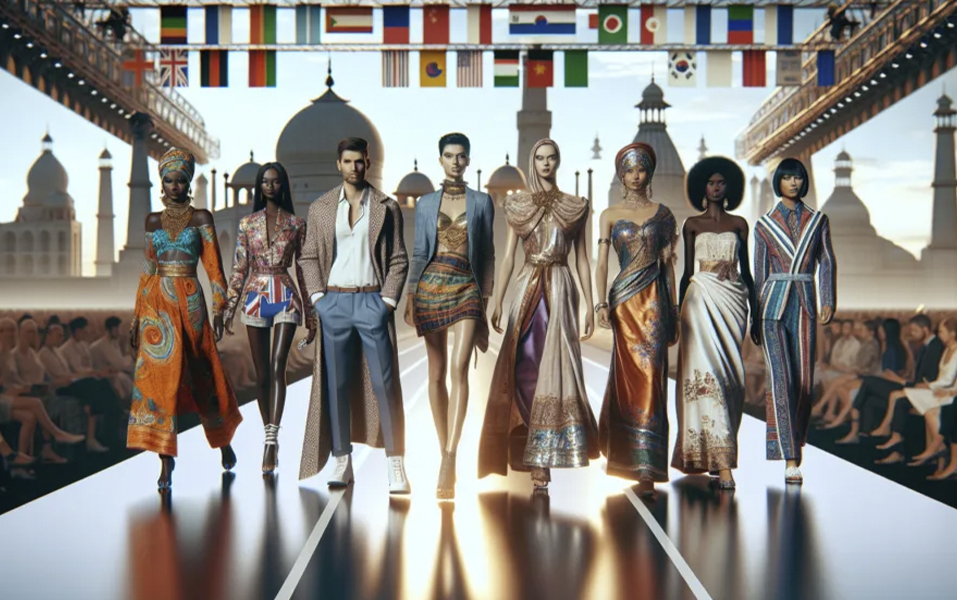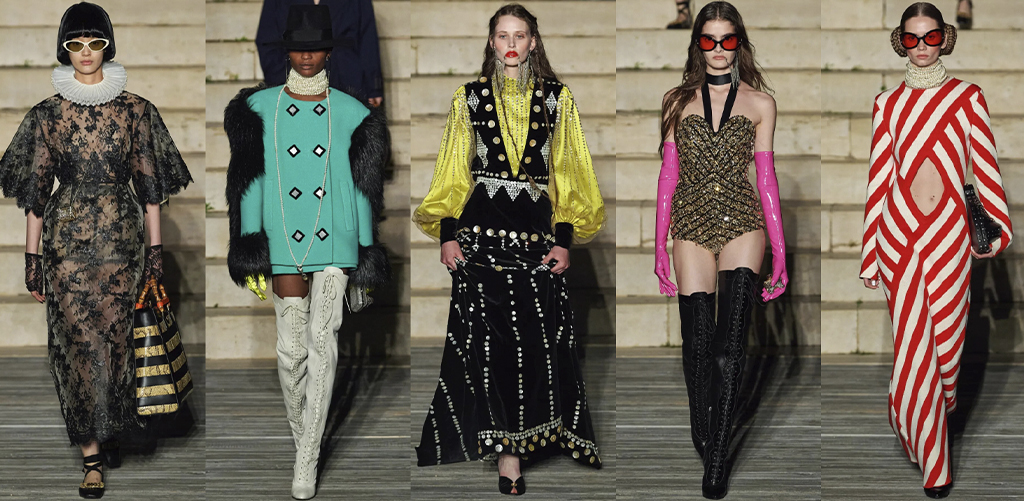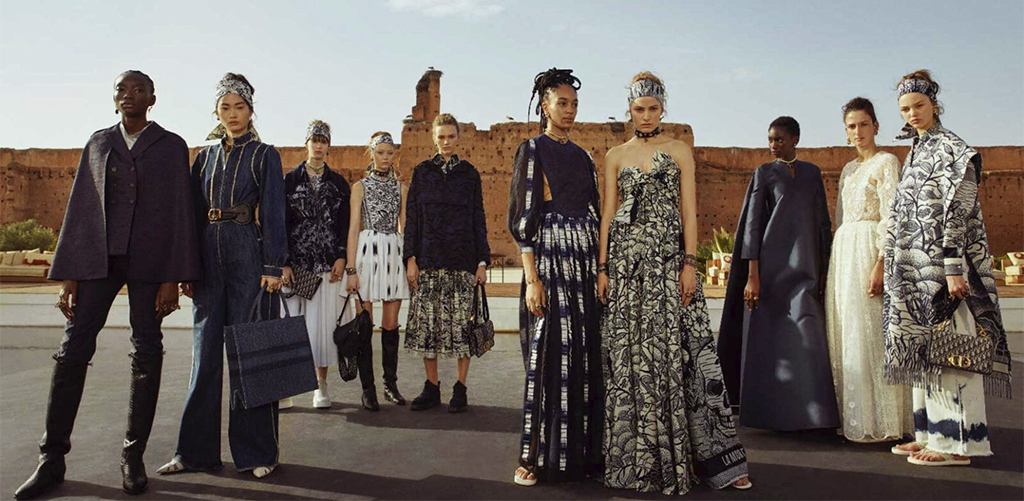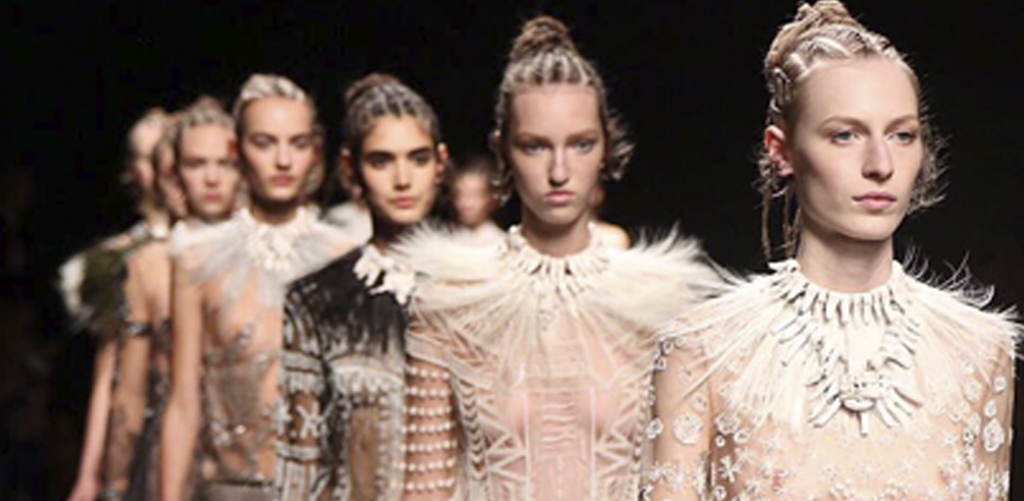

According to a survey by McKinsey & Company, “74% of global consumers believe fashion is a powerful medium for cultural expression.”
This fact makes it clear that society has a big impact on modern fashion design. Fashion goes beyond nations, using different cultural elements to make designs that are popular all over the world. Globalisation is speeding up, and designers are getting more and more ideas from different cultures to make pieces that tell stories and celebrate tradition.
Global cultural influences are changing fashion, and significant instances demonstrate how traditions and trends can coexist. Aspiring designers can learn how to handle these factors in the Fashion Design Course at JD Institute. This enables them to shape the future of fashion, drawing inspiration from culture.
It is becoming increasingly common for designers to develop revolutionary designs by mixing present aesthetics with classic features. This combination not only pays tribute to heritage but also appeals to people all across the world. Gucci collaborated with Indian artisans to make its Resort 2023 collection, which featured detailed embroidery and mirror work. The collection mixed Indian craftsmanship with modern silhouettes. The end product was an amazing mix of cultural history and high-end fashion.

Such cross-cultural designs redefine fashion, emphasising inclusivity and creativity. Aspiring designers can learn to master this art of blending traditions with modernity through programs that encourage innovation and global exposure.
An important global movement, streetwear, has developed to incorporate cultural symbols and tales over the course of its evolution. Designers are using this casual fashion style as an opportunity to showcase their roots in the fashion industry.
Japanese fashion streetwear brands like BAPE and UNDERCOVER commonly employ traditional Japanese features like kimono-inspired patterns and Ukiyo-e prints. This one-of-a-kind style has made Japanese fashion famous all over the world. Streetwear’s use of cultural elements shows how the newest generation is embracing their background while still staying on trend, which is essential knowledge for fashion students today.
The majority of the inspiration that designers draw from comes from festivals and other cultural events. The designers are able to incorporate a wide range of colours, textures, and feelings into their collections by taking use of the colourful palette the events provide.
The Cruise 2020 Collection by Dior was inspired by Mexican customs. It had embroidery and designs that recalled the Día de los Muertos festivities. This collection showed how cultural events can lead to designs that are loved all over the world.

Natural dying, hand-weaving, and low waste creation are some of the sustainable practices that cultural groups have long used, and these are becoming increasingly important in the fashion industry as sustainability becomes a major focus.
Stella McCartney’s collaboration with Native American designers in 2021 emphasised sustainability through traditional weaving techniques. This initiative not only celebrated indigenous craftsmanship but also aligned with eco-conscious fashion.
At JD Institute, students are trained in sustainable fashion practices, emphasising the significance of blending environmental responsibility with cultural authenticity.
Travel has emerged as an essential source of inspiration for designers, as it enables them to discover other cultures and incorporate their knowledge into the making of exclusive works of art. African groups influenced Valentino’s Spring 2016 Collection. Bright prints, beadwork, and jewellery reminiscent of Maasai craftsmanship adorned the collection. While the collection was a celebration of Africa, it also led to conversations about the difference between recognizing and using other cultures.

The mixing of different cultures in fashion is making the business a rich blend of customs, stories, and new ideas. Designers aren’t limited by borders anymore; instead, they welcome differences to make designs that look good on everyone. Talented designers can lead this culture shift if they get the right education and work experience. The Fashion Designing Course at the JD Institute of Fashion Technology gives students a chance to learn, experiment, and do well in a field that is always changing.